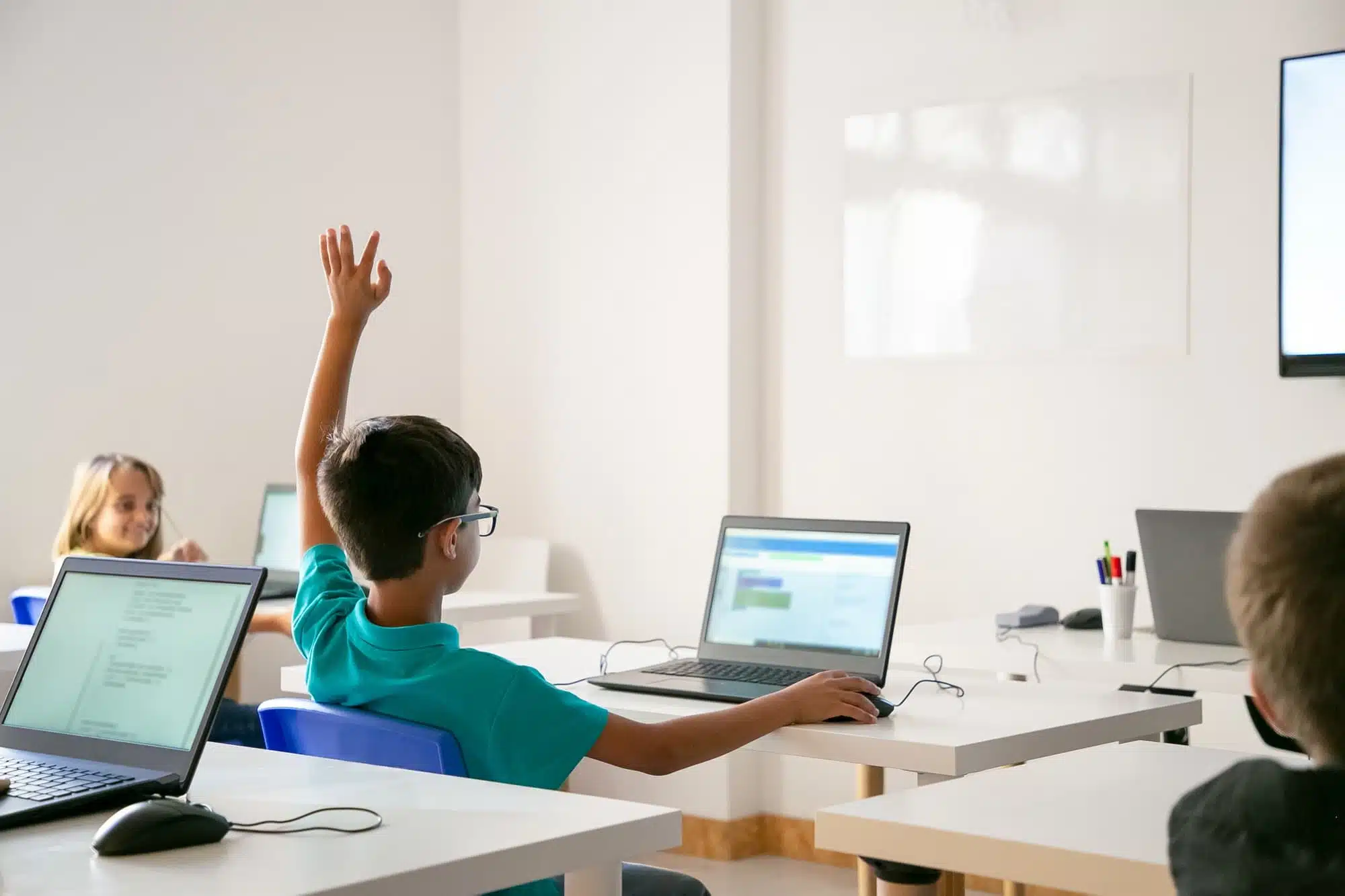The recent decision by the Community of Madrid regarding technology in classrooms, banning the individual use of tablets and mobile phones, has brought back to the forefront a topic that is both uncomfortable and urgent: its impact on childhood and adolescence.
Is this a necessary measure? Or are we, once again, acting too late and ineffectively? Evidently, the problem is not the screens themselves but the lack of an educational culture that prepares children and young people to coexist with them responsibly and with self-control.
Technology entered classrooms without preparation, without adequate teacher training, and without deep reflection. Today, in many schools, the tablet has replaced the notebook, but it has not transformed the methodology or the way of learning. Innovation remained superficial.
A painful reality: addiction, isolation, and lack of self-control
A misunderstood approach to technological education has led to concerning side effects. According to the report “Impact of Technology on Adolescence: Relationships, Risks, and Opportunities” published by UNICEF Spain in 2021 in collaboration with the University of Santiago de Compostela and the General Council of Colleges of Computer Engineering, a detailed analysis of technology use among adolescents aged 11 to 18 was provided:
- 90% of adolescents admit to using their mobile phones right before sleeping.
- 30% confess to feeling dependent on their phones.
- Over 70% spend more than four hours a day in front of screens.
- 40% have accessed pornographic content regularly before the age of 14.
These figures highlight worrying trends in adolescent technology use, emphasising the need for proper supervision and education to promote healthy digital habits.
Technology in classrooms: Is it compatible?
The decision to ban mobile phones may seem drastic to many, but perhaps it is part of the solution. The question is: are we doing this out of conviction or desperation? If we merely remove the device without educating in freedom, judgement, and self-restraint, the problem will persist—just in disguise.
Education is not about imposing from the outside but about forming from within. It is about shaping willpower, teaching how to make good choices even when no one is watching, and developing character. Limits are important, but even more crucial is that children and adolescents understand why these limits exist.
Character Education: The key we are ignoring
At Fundación Parentes, we make it clear: the goal is not to create students who simply obey but individuals who understand, who know how to manage their freedom, who develop self-control, introspection, critical thinking, and resilience in the face of frustration.
Programmes such as BeLeader are proving this. When character education is approached comprehensively, young people not only reduce their dependence on technology but also improve their self-esteem, decision-making skills, and sense of purpose because they realise that turning off the screen is not enough—what truly matters is igniting their inner self.
Conclusion: A historic opportunity to do it right
The Community of Madrid has opened the debate, but the real challenge is not to ban but to transform. We must commit to profound education that shapes free and responsible human beings in a hyperconnected world.
To do this well and effectively, it is essential to understand that the challenge goes beyond a simple restriction; it requires a cultural transformation that involves the commitment of families, educators, and society as a whole. Technology, both inside and outside the classroom, is not the enemy but a tool that must be understood and used with intelligence and discernment.
Technology is here to stay, and we still have time to teach new generations how to live with it without becoming enslaved by it. To use it without being used, to integrate it with judgement, self-restraint, and humanity.
María Asunción Rey Ballesteros
Character Education Expert and Programme Director at Fundación Parentes
